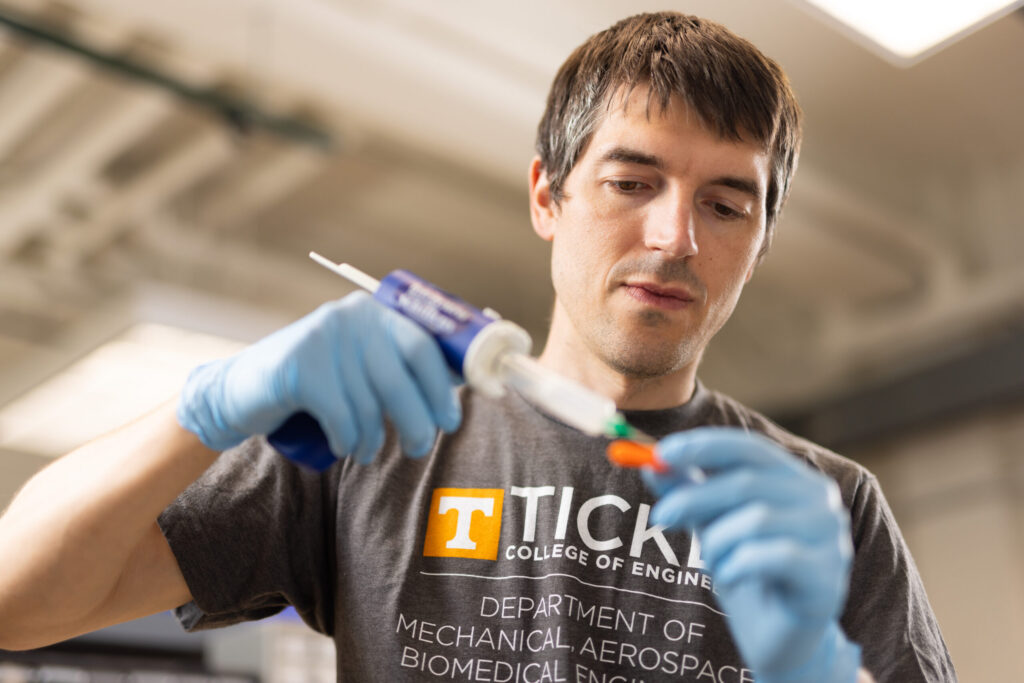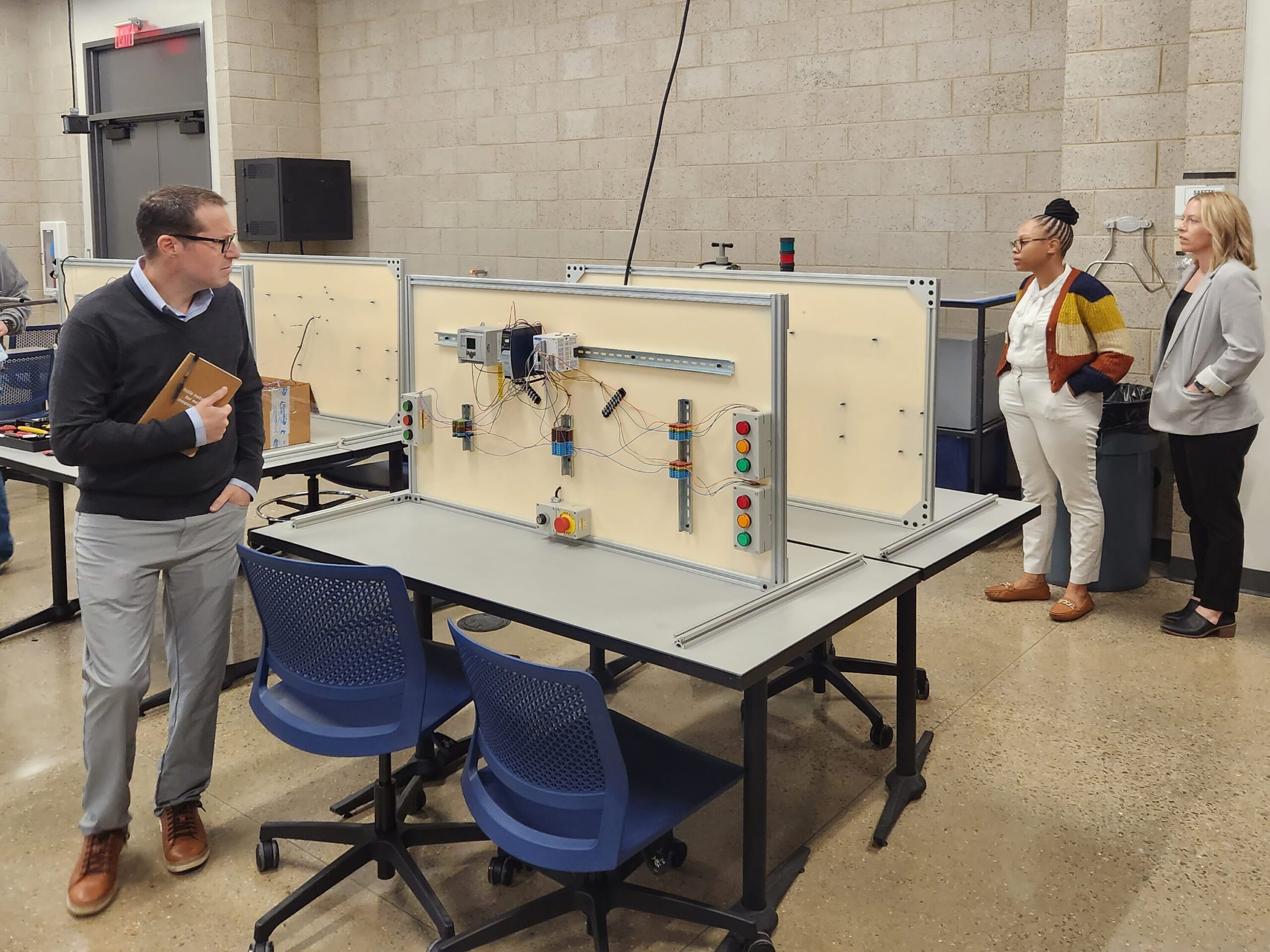
The University of Tennessee Research Foundation (UTRF) is a powerhouse that drives UT’s mission to turn groundbreaking research into real-world applications. With a 90-year track record of commercial success and a rich innovation pipeline, UTRF serves as a connector within the UT innovation ecosystem and a bridge between the university and the business and investment community.
We love to receive every disclosure. It doesn’t matter at what stage or what level it might be. We love to hear about it,” said Todd Ponzio, UTRF vice president of the Health Science Center Office. “Tech transfer is a people business.”
Identifying Potential and Protecting Innovation
With offices in Knoxville and Memphis, UTRF facilitates the commercialization of innovations, supports UT’s research, nurtures and supports an entrepreneurial culture, and promotes economic development for the State and beyond. UTRF has a strong team of subject matter experts who work closely with UT faculty, students, and staff to identify, protect, and commercialize intellectual property (IP).
Essentially, our efforts focus on turning research into products,” said Ponzio.
After a disclosure is filed, the UTRF team evaluates the technology to determine whether it is novel, has a market need, and is large enough to merit investment.

Ponzio highlighted the difference between invention and innovation in evaluating a disclosure for commercial success. “Invention is the discovery—the first idea. You come up with a new, cool recipe that is really delicious,” said Ponzio. “Innovation is then the process of bringing that to a sustainable conclusion to bring it to market. So, if you come up with a great recipe, innovation is serving it in a five-star restaurant.”
Some notable IP or “five-star restaurants” from the last decade include the essential technology in N95 respirators and over a dozen hardy dogwood varieties. Additionally, numerous promising drugs are in clinical trials at UTHSC, which Ponzio believes indicates just how “challenging it can be to get products to market.”
We’re moving full steam ahead, but drugs can take 10 years or more to go through the FDA. During this time, UTRF supports and consults with these researchers as best we can to help them move their technologies along,” he continued. “There’s a track record of success and a pretty rich clinical trials pipeline that would be the envy a lot of tech transfer offices.”
Tech Transfer is a “Contact Sport”
For the UTRF team, the tech transfer process is exceptionally partnership-driven.
To quote UTRF President Maha Krishnamurthy, ‘Tech transfer is a contact sport,'” said Kusum Rathore, UTRF vice president of the Multi-Campus Office. “You need to ‘collide’ with inventors—knock on doors, walk the hallways, rattle the bushes. You need to work with them and build trust and relationships.”

UTRF’s work goes beyond patent evaluation. The office offers advisory services to help innovators bring their ideas to fruition. The commercialization journey can be long and arduous, but UTRF seeks to support innovation from the ground up. Some of these initiatives include the Accelerate Fund, the Entrepreneurial Fellowship Program, the Entrepreneur-in-Residence Program, and the Maturation Grant Funding Program. Each program provides researchers with critical funding and mentorship, empowering them to navigate the early stages of commercialization.
We’re pretty hands-on with our portfolio,” said Ponzio. “To the extent that UTRF can help move these technologies forward, we will definitely do that.”
Driving Economic Growth and Job Creation
UTRF’s tech transfer work directly impacts Tennessee’s economy by creating high-tech jobs, attracting investment, promoting industry partnerships, and improving the local workforce’s capabilities.

This work happens through licensing technology to existing companies or new startup ventures. UTRF has been proud to support entrepreneurs like Hicham Ghossein, founder, president, and CEO of Endeavor Composites, as he works to provide a zero-waste circular economy solution for composite manufacturers.
UTRF also supports and advocates for researchers like Monica Jablonski, a UT Health Science Center researcher and founder of OculoTherapy, helping them participate in accelerator programs and pitch competitions to grow their ventures. OculoTherapy offers a novel treatment, Calseetra, that addresses failures of current glaucoma medications.
Not only do we provide funding support, but there is also a deep consulting aspect to our work related to industry and regulatory requirements,” said Ponzio.
By translating academic research into real-world products and solutions, UTRF promotes innovation and generates revenue that can be reinvested into further research. In doing so, UTRF aligns with UT’s larger mission of positively impacting Tennessee’s economy and beyond.
We encourage our startups to have associations with UT,” said Rathore. “For example, Attralus, a biopharmaceutical startup established by UT researcher Jonathan Wall, has invested over a million dollars into UT research. Partnerships like this positively contribute to the economic development of the state and the university.”